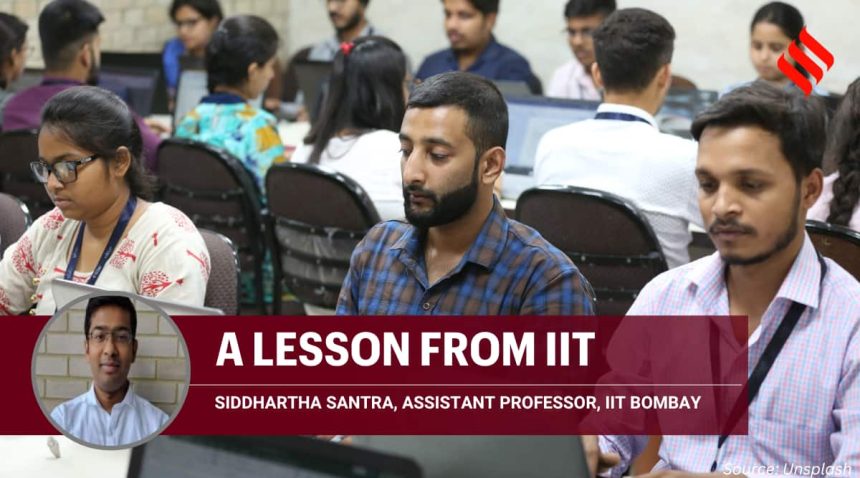Written by Siddhartha Santra (A Lesson from IIT is a weekly column by an IIT faculty member on learning, science and technology on campus and beyond. The column appears every Friday) Years after my graduation from IIT Kharagpur — 16 to be precise — here is a list of what five of my closest friends are: an IAS officer, a data-analytics entrepreneur, an engineering manager at Google, an expert mountaineer, and an executive director of financial engineering. Let me tell you the branches they studied in random order: aerospace, civil, metallurgy, physics and mechanical engineering. Here is a puzzle: Match the current jobs of my friends with their branches. Getting this right would make you among the less than 1% (I tested it out with five people and only one got it right) of people likely to do so statistically! But there is a reason I started off with this puzzle and it is to say that the branch of your undergraduate training often has little correlation with your long-term career. Secondly, even those people who are regarded as successful in the long-run may not — and often do not —- have a clear idea of their career path right from the outset. The friends I have spoken of are fundamentally optimistic people who made the best of all life-choices, even the ones that were involuntary. In my opinion, therefore, fixating on branch choices and fretting about the “ideal branch” may be unnecessary. In fact, it may also be counterproductive even if the goal is a successful career as part of a happy life. I would like to tell engineering first years that your primary emotion should be curiosity and enthusiasm. You should not be driven by anxiety and unhealthy competition. Please take a large-canvas view of life, recognise your own spectacular achievement and appreciate the opportunities your new social and physical environment brings to you. Realise that the skills — of self-discipline, self-accountability and self-awareness —- you pick up at IIT will remain with you long after you may have forgotten the details of your favourite course. Most importantly, consider the branch of study as only the means to the bigger goal of your college experience. Also, please do not obsess over which IIT you join. Put your best foot forward wherever you go. At most IITs, the academic structure allows students to pursue their interests across departments and fields. This can happen via a minor degree, cross-departmental projects, or simply via conversations and guided reading projects with a faculty in the student’s area of interest. For example, all departments at IIT Bombay offer students from other departments an option to complete a mix of electives that can lead to a minor degree. So, we have students from a wide set of departments, ranging from CSE to mechanical engineering, who can get a minor degree in physics. Students can also formally do their BTech projects with a co-supervisor from a different department. Alternatively, students can “audit” courses of their interest in any department, meaning they can learn about a topic by attending lectures without needing to take the exams. You can also just approach a faculty member and have a conversation with them. In short, your branch does not limit your pursuit of knowledge in any area. It is hard to predict the specific technologies or skills that will be needed for jobs in a decade from now. The future world will require experts in policies and technologies related to sustainability, circular economy, artificial intelligence, cryptocurrencies, genetic-manipulation based therapies and quantum information processing, among others. Given that career trajectories in this age are so nonlinear. it may not be very useful to insist on an optimal choice for the branch of your college degree. We have not yet imagined the careers of the future. Thus, the best course of action may be to continuously upgrade one’s skill set so that they may be used to address important moral and sociological issues facing humanity. I leave you with one more personal anecdote. Among the eleven of us who formed the graduating class of 2007 in physics from IIT Kharagpur, ten have gone on to have very successful careers that are not related to physics. As for the puzzle: the careers and branches were listed in corresponding order. The writer is assistant professor, Department of Physics, IIT Bombay



